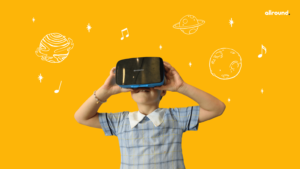The music industry has undergone rapid transformation over the last few decades, driven by technological advancements, shifting consumer preferences, and new distribution methods. As we look toward the future, it’s clear that more changes are on the horizon. From artificial intelligence in music creation to immersive listening experiences, the future of music promises to be an exciting journey. In this article, we’ll explore the key trends to watch for in the music industry, offering a glimpse into what lies ahead for artists, fans, and music businesses.
1. Artificial Intelligence in Music Creation and Production
AI is already making its mark in the music industry, but its influence will only grow in the coming years. From generating melodies and harmonies to assisting in mixing and mastering, AI-driven tools are becoming integral to music creation.
- What to Expect: AI is expected to advance beyond helping musicians create simple melodies to developing complex compositions, producing full tracks, and even generating entire albums. These AI tools will analyze music patterns, helping musicians optimize their compositions and discover new creative possibilities.
- Impact on Artists: While AI will provide more creative freedom, it may also spark debates about the authenticity and soul of music. However, it will empower both independent artists and major labels to experiment with new sounds and push musical boundaries.
2. Immersive Audio Technologies: Virtual and Augmented Reality
The rise of immersive audio experiences through virtual reality (VR) and augmented reality (AR) is set to change the way people consume music. Imagine attending a concert from your living room or experiencing music in 360 degrees with spatial audio.
- What to Expect: In the future, VR and AR will offer fans fully immersive concerts and live experiences, where they can interact with the performance in ways they’ve never been able to before. Music videos may become fully immersive experiences, allowing fans to explore environments while listening to the music.
- Impact on Artists: Artists will have more ways to engage with their fans, creating virtual shows, interactive content, and unique experiences. This opens up new revenue streams and allows them to connect with audiences who may not be able to attend in-person events.
3. The Evolution of Music Streaming
Streaming has become the dominant way for consumers to access music, but as technology advances, the streaming landscape will evolve further. We’re likely to see the growth of personalized experiences and new revenue-sharing models.
- What to Expect: Future music streaming services will be more tailored to individual preferences, using sophisticated AI algorithms to recommend songs, albums, and playlists based on listening habits. Subscription models might also shift to include new forms of monetization, such as offering exclusive content or direct artist support.
- Impact on Artists: With streaming platforms becoming more interactive, musicians could have greater control over their exposure and revenue streams. New models like direct fan support or premium subscriptions for exclusive content could lead to more sustainable income for artists.
4. Blockchain and NFTs for Music Rights Management
Blockchain technology is poised to revolutionize how music rights and royalties are managed. By providing a secure, transparent ledger, blockchain can track the ownership of music and ensure fair compensation for creators.
- What to Expect: Blockchain’s integration with NFTs (non-fungible tokens) will allow artists to sell their music, albums, and other digital content as unique, verifiable assets. This can solve many of the issues surrounding music piracy and royalty distribution, giving artists more control over their intellectual property.
- Impact on Artists: Blockchain will help artists retain more of their earnings and streamline the royalty collection process. NFTs also offer a new way to monetize music, allowing artists to sell limited-edition releases or exclusive content directly to fans.
5. Virtual Artists and AI-Generated Performances
Virtual artists and AI-generated performers are already entering the mainstream. These digital avatars, powered by artificial intelligence, are capable of releasing music, performing in virtual spaces, and engaging with fans.
- What to Expect: The line between human artists and virtual ones will blur, with digital avatars gaining popularity as performers. AI-generated artists may produce music with little to no human intervention, and virtual concerts could become more common, offering fans the ability to attend shows anywhere in the world.
- Impact on Artists: Virtual artists provide an exciting opportunity for creators and the music industry to experiment with new performance formats. These avatars could become new stars, creating an entirely new category of “artists” in the industry.
6. The Shift to Sustainability in the Music Industry
As global awareness of climate change rises, sustainability is becoming an increasingly important issue in all industries, including music. More musicians and organizations are advocating for eco-friendly practices, from concert tours to music production.
- What to Expect: Music festivals and concerts will see more sustainable practices, such as zero-waste events, carbon-neutral touring, and eco-friendly merchandise. Artists are also exploring ways to reduce their environmental impact during music production, such as using energy-efficient equipment and reducing plastic use.
- Impact on Artists: Musicians who embrace sustainability could attract environmentally conscious fans and align their brands with global movements. This trend could also lead to more partnerships between artists and organizations dedicated to environmental causes.

7. Social Media and the Continued Rise of Fan-Driven Music Promotion
Social media platforms like TikTok, Instagram, and YouTube have already had a major influence on the discovery and success of new music. This trend is expected to continue, but the future will see even more integration between music platforms and social networks.
- What to Expect: In the future, music promotion will increasingly rely on fan-driven content and viral trends. Artists will continue to use social media platforms to connect with their audiences, and these platforms may integrate new features that enhance music discovery, such as live streaming or social listening experiences.
- Impact on Artists: Musicians will have more direct ways to engage with fans and promote their music without the need for traditional gatekeepers. Social media’s ability to make music go viral will give independent artists the opportunity to achieve success based on their talent, rather than their label affiliation.
8. Enhanced Personalization in Music Experiences
With the help of AI and machine learning, the future of music is likely to be more personalized than ever before. From custom playlists to interactive music experiences, technology will allow listeners to enjoy music tailored specifically to their preferences.
- What to Expect: Future music experiences will become hyper-personalized, with apps and platforms analyzing a listener’s mood, location, and preferences to suggest the perfect soundtrack. We may even see AI-powered music creation tools that allow listeners to co-create music in real-time, making the experience feel even more customized.
- Impact on Artists: This trend could help musicians target specific demographics more effectively and engage with listeners on a deeper level. It also presents new opportunities for fan-driven music creation, where listeners play an active role in shaping the music experience.
Conclusion
The future of music is brimming with possibilities. From AI-generated compositions to immersive virtual concerts and blockchain-powered royalties, the industry is evolving rapidly. As these technologies continue to develop, musicians will have new tools at their disposal to create, share, and profit from their music. The future promises to be more diverse, personalized, and interconnected, offering exciting opportunities for both artists and fans alike. Whether you’re an artist looking to experiment with new tools or a fan eager to experience the next big thing, the music industry’s future is sure to be thrilling.







